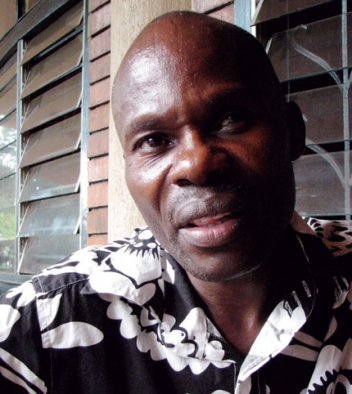 This evening, I have just returned from an excellent and moving film screening in London for Holocaust Memorial Day.
This evening, I have just returned from an excellent and moving film screening in London for Holocaust Memorial Day.
The day is marked on January 27, the day that the Nazis’ most notorious and deadly concentration camp, Auschwitz-Birkenau in Poland, was liberated during the Second World War.
But Holocaust Memorial Day is not just about remembering the millions of Jews that died during that period, but also the thousands of others who were rooted out and killed in the name of Hitler’s fascism, such as Roma, the disabled and homosexuals.
The day also marks subsequent genocides such as in Cambodia, Rwanda, Bosnia and Darfur.
And it is a time to remember that all over the world people are still being oppressed and discriminated against.
I cannot think of a more brutal reminder of this than the shocking murder of courageous gay rights campaigner David Kato in Uganda, just yesterday.
Older people told their stories
The theme of this year’s Holocaust Memorial Day was ‘Untold Stories’ so this evening’s programme included the following three short films:
The Survivors of the Rwandan Genocide: An Untold Story: an emotive 15-minute documentary on the situation of the Rwandan genocide today.
Kazik and the Kommander’s Car: a brilliant part-animated documentary centred on a meeting between singer Katy Carr and Kazimierz Piechowski (Kazik) who was imprisoned in Auschwitz but escaped in June 1942 after he and his friends stole Rudolf Hess’s car.
No Pasaran (premiere in October): a fascinating story about anti-fascism in the East End of London and the experiences of being in the International Brigade, fighting Franco’s fascism in 1930s Spain.
Real-life histories
Naturally, the people in the films being interviewed about the Holocaust and the International Brigade were older – in their nineties – but they gave moving and fascinating accounts of their experiences, recalling it like it was yesterday.
After the screening, Ubby Cowan, the 93-year-old star of No Pasaran, who had been sitting in the audience, told us a clear and colourful tale of the day he and thousands of Jews in London’s East End mobilised to block Britain’s fascist party, led by Oswold Mosley, from marching down Cable Street.
It was the perfect, inspiring illustration of how older people can be such an important and fascinating link to history. I felt grateful that Ubby’s grandson Yoav Segal had made No Parasan – and indeed that all the filmmakers had recorded these stories as inevitably in a few years’ time, the protagonists will be gone.
Listening to those older survivors’ now, and hearing how they stood up, spoke out and fought against fascism was deeply inspiring – and a perfect example of how older people’s experiences can motivate us to shape a better future for our world.
Age inspires action
But if fighting for the right thing just seems too big a task, perhaps we can take inspiration from Shirley – the sister of the late Sam Russell, who also starred in No Parasan.
After the film, she shared with us a few marvellous anecdotes from her life that has been packed full of political activism. Now she is in her 80s and shows no sign of slowing, urging all of us to support her in her next campaign – saving Britain’s National Health Service from being sold off into private hands.
The government had better watch out…
Getting started
Want to start taking action right now?
The International HIV/AIDS Alliance has several ways you can respond officially to the death of David Kato and support the lesbian and gay community in Uganda. Speak out now.
David Kato picture by Jocelyn Edwards.
